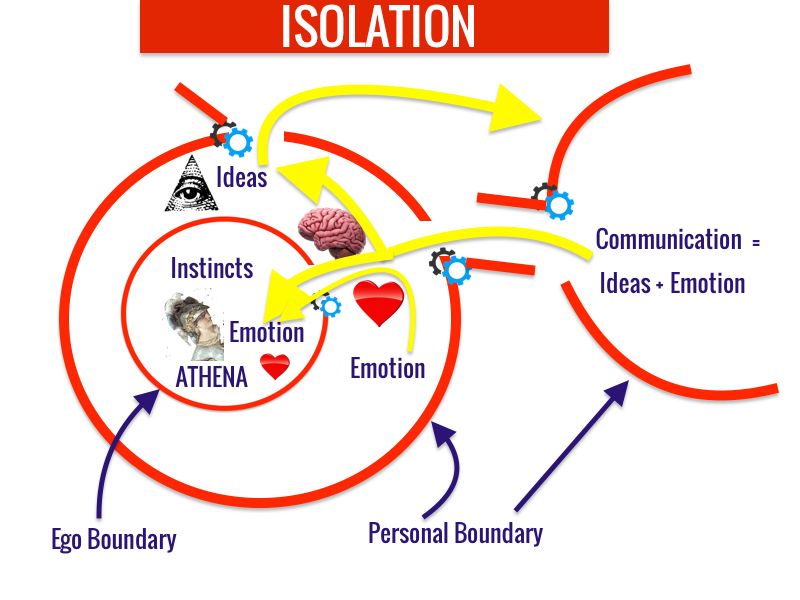Like intellectualization, the social habit of isolation tamps down on the outer expression of emotion, in favor of only focusing on ideas. It reminds us that we have an inner experience of communicating to ourselves. This separation need not be only seen in explanations of things or intellectual arguments, but also simply the inner experience of not feeling the emotions of a social situation, as if the emotions are stuffed into the unconscious alongside the instincts, under the “ego boundary,” and out of our awareness.
This social habit may be a bit more personal than social at times, and underlines the adaptive nature of the instincts and defenses of the conscious mind. For example, if one were in a harrowing financial or even life-threatening situation in which one had to keep his or her cool in order to get through to safety, the automatic prevention of high emotionality helps them do any rational, logical work that needs to be done to pull through to success.


